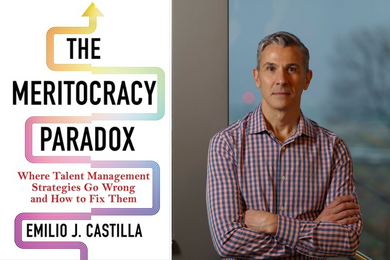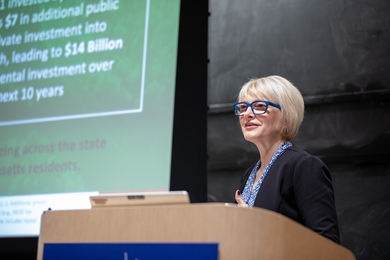Mel King, senior lecturer emeritus in MIT's Department of Urban Studies and Planning and a former state representative from the South End and Roxbury, reflects on the political career of long-time Massachusetts Congressman Joe Moakley, who died May 28 of leukemia.
I watch with interest and wonder the respect and admiration for the "people's representative," Joe Moakley. Interest -- in the way Bostonians have poured out in person and with words their feelings for and about his impact. Wonder -- are those same people, South Bostonians in particular and Bostonians in general, aware of the seeming contradiction in their behavior during the congressional primary in 1970 and election in 1972, and their posture now?
There has been little recognition of how, in fact, he got elected. In the 1970 September primary, Joe Moakley won the South Boston wards 6 and 7 by 775 votes. However, Louise Day Hicks outpolled him across the city, gathering 24,000 votes to Moakley's 19,000 and David Nelson's 18,000 to capture the seat.
An early indication of Moakley's growth and respect for the value of coalition and diversity and the long-range futility of racist-motivated politics was his recognition of David Nelson's effort. According to Hubie Jones, Moakley saw the vitality in Nelson's effort as one that stood on its own and did not detract from his effort.
In the 1972 race, Moakley changed his tactics so he could broaden his base in the election by running as an independent. Bypassing the Democratic primary was a recognition that to win, he would have to reach out to a constituency that was not locked into the politics of divisiveness and blind parochial obedience to "you know where I stand."
He lost South Boston wards 6 and 7 by 2,428 votes and the West Roxbury ward 20 by 4,500 votes. The difference, however, was made up in the Roxbury and Mattapan wards 12 and 14, where he outpolled Louise Day Hicks by 6,878 votes. With strong support from the African-American community, he narrowed the gap in Boston to 192 votes.
The mobilization of that community, combined with the support in the districts outside the city, enabled him to win the 9th Congressional District seat.
The evidence is clear that Moakley was not originally "the people's choice." And ironically, without the efforts of the African-American community, which was demonized by many Boston politicians, they wouldn't have had the leadership and service he provided over the years.
In all the comments about his South Boston roots, what is neglected is that his stature rose when he took the route to Congress through Roxbury.
-- Mel King





